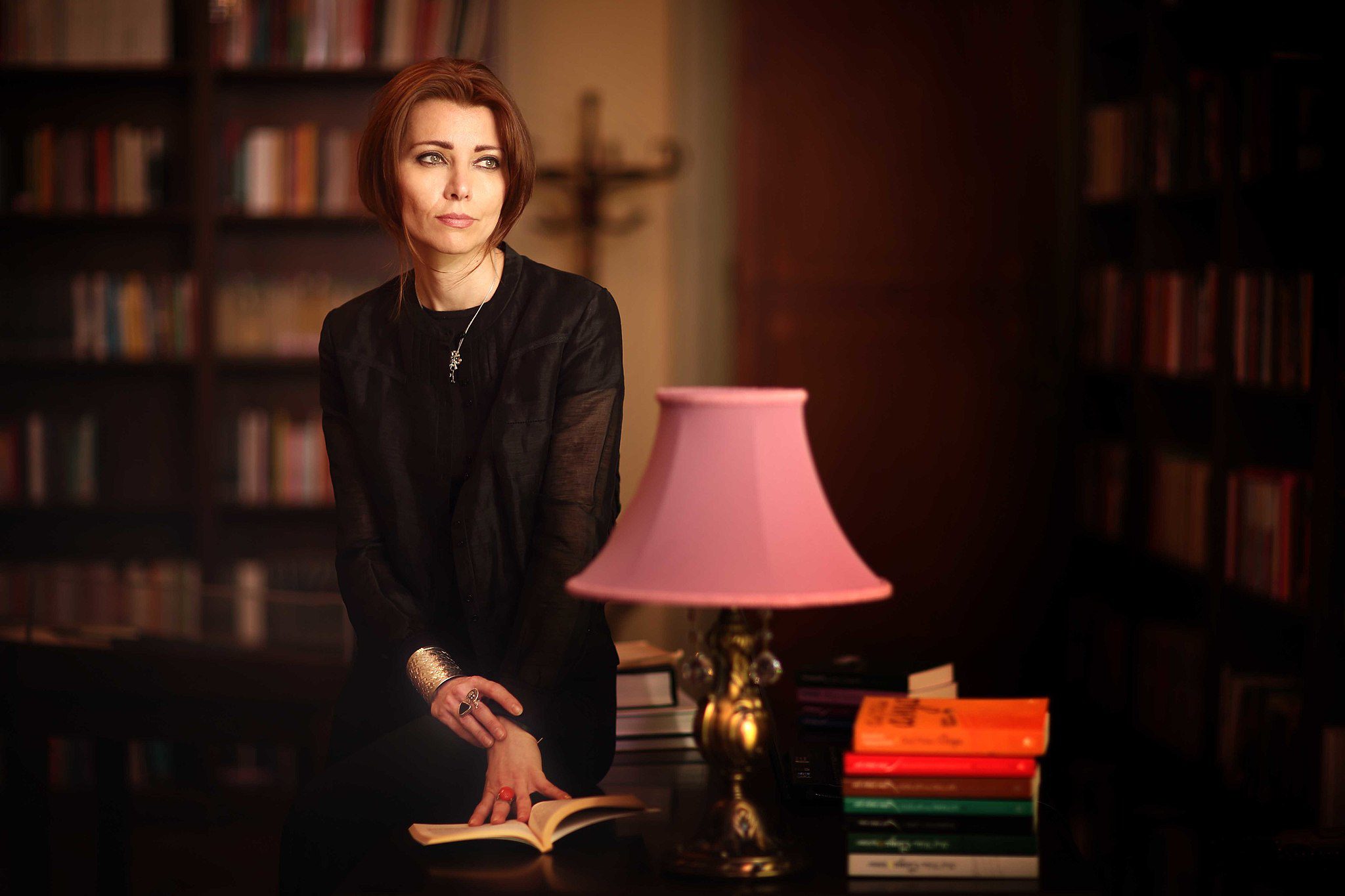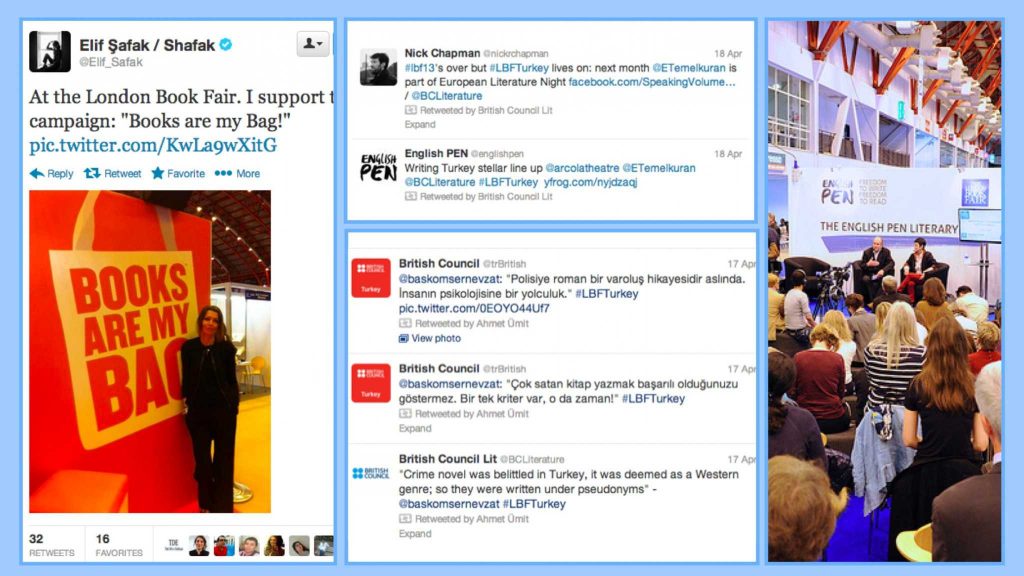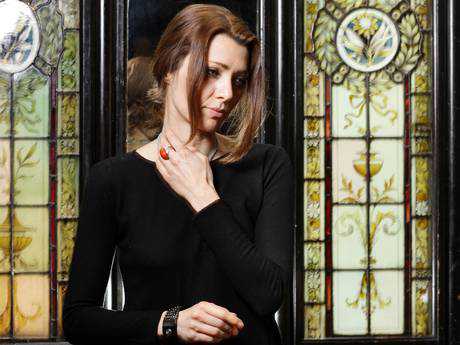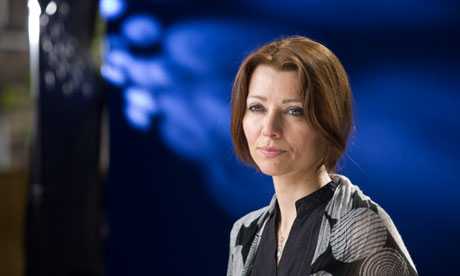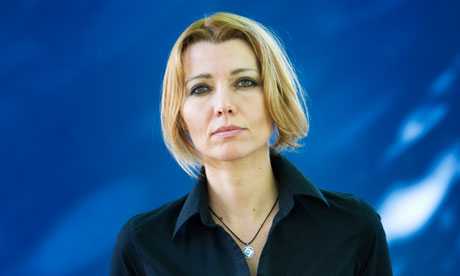OPEN LETTER TO ELİF ŞAFAK
Ferruh Demirmen
Turkish Forum, December 19, 2005
Dear Ms. Şafak:
I have noticed that you, as a young Turkish academic, have joined the ranks of Taner Akçam et al. You are already a coveted participant in Armenian forums, and my congratulations to you for that distinction. As a novelist-cum-historian-cum-columnist, you write weekly columns in an English-language Turkish newspaper, and that is how I came to know you. If you were not one of a kind in your class, Ms. Şafak, I would not waste my time writing this piece. But you are rather special.
Apart from your haughtiness and your elitist views on the so-called Armenian genocide, you have frequently carped about Turks — “especially those living in U.S. “— that disagree with you. Below you will find my views on your carping, and a piece of advice on the side. I offer my advice totally gratis.
You first came to my attention from your article (duly reproduced on one of the Armenian websites) on the discredited Armenian conference that took place in Istanbul in late September. It was the conference where Turks were treated as the accused but denied self-defense — similar to the myriad conferences held or sponsored by the Armenian lobby. The disgracefully one-sided, but impeccably choreographed conference, where almost every invited participant from speaker to listener was an advocate of the alleged Armenian genocide, was ridiculously hailed as a “scientific” or “scholarly” meeting and justified in the furtherance of “democracy” and “freedom of speech.” Not a single historical document was presented during the conference to shore up the genocide claim. But the Armenian lobby loved the conference, just as you did.
What evidently prompted you to pen your article, Ms. Şafak, was the experience you had with the taxi driver after you had arrived at Istanbul airport from abroad to attend the conference. After striking a conversation of sorts with the driver, and expressing your elitist views on the alleged genocide, you, with a condescending demeanor, tried to educate the driver about the sanctity of “academic freedom” and “democracy.” The taxi driver, obviously not an erudite man, but proud to be a Turk, and having enough common sense to recognize snobbery, and separate deceit from truth, was so incensed with your “enlightened” stance that he refused to accept taxi fare from you. That should have sent a powerful message to you and hurt your pride. But I doubt your pride was bruised in any way. The air of arrogance surrounding you was so thick; you could cut it with a knife. And that probably prevented the message from passing through.
Just to let you know, Ms. Şafak, I would have wanted to kiss that noble taxi driver on his forehead. Soon followed another article by you in which you declared your open support and admiration for Hrant Dink. Notwithstanding his views on the genocide issue, we had come to know Mr. Dink, the editor of the Armenian weekly “Agos” published in Istanbul, a friend of Turks, a liberated Armenian living in Turkey and valuing Turkish citizenship.
In October, Mr. Dink was given a six-month suspended jail sentence by the court for insulting Turkishness. Speaking high-mindedly of minority rights in Turkey, you claimed the sentence was discriminatory. But cleverly, you did not disclose what Mr. Dink had written. In the February 13, 2004 issue of Agos, Mr. Dink, in describing the Armenian identity, made reference to “poisoned blood spilled by the Turk,” contrasting it with “clean blood in the noble Armenian vein.” There was an allusion to Kemal Atatürk’s hallmark address to the Turkish youth after the War of Independence, which made his allegory all the more provocative. No matter how one spins it, and Mr. Dink subsequently tried to do that, the allegory was clearly racist and insulting.
But that did not bother you. Nor did it bother EU, which had the gall to criticize Turkey for not respecting Mr. Dink’s freedom of speech, in total disregard of the fact that in France and Switzerland, mere denial of the alleged Armenian genocide is a crime. Prof. Bernard Lewis, Prof. Yusuf Halacoglu, and the leader of Turkey’s Worker’s Party Doğu Perinçek know it too well. A message in EU’s criticism was that that the freedom of speech is a principle that should be respected or ignored depending on the occasion. The double standard, the duplicity, was nauseating. Since when is racism protected under the “freedom of speech”?
But Ms. Şafak, you did not merely express solidarity with Mr. Dink. In criticizing the court’s decision, you inveighed: “Hrant, you did not commit any crime. It is those who make you feel like a ‘foreigner’ in your own land that have been committing a crime for centuries.” Committing crime for centuries? And who might those criminals be? The terrible Turks? Or those infamous courts? Hmm! A gem of observation that could be included in the Annals of Slander — if there were ever one. That sure would have been another avenue to give you fame.
If you really wanted to know an Armenian that was a true friend of Turks, Ms. Şafak, you should read the book titled “I Am Called A Friend of Turks — The Truth Must Be Told — An Autobiography” by Edward Tashji — a man of high integrity and rare courage, free of hatred, born and raised Armenian, married Armenian, lived, prayed and died Armenian — now resting in New Jersey.
In his book, Tashji, recounting the dark days of World War I in Anatolia as told by his parents, who lived through the madness of it all, debunks convincingly the bogus claims of genocide. Even a die-hard pro-genocide elitist like you would be moved by that book. I assure you.
In your later articles you complained that many Turks living abroad (“especially those living in the United States”) have been sending you uncomplimentary, even hateful, e-mails (I swear, I was not one of them), one person even calling you “so-called citizen of Turkey” (the label you found particularly offensive). You thought these people are narrow-minded and bigoted, slow to change. You called them “aggressive nationalists.” In contrast, you implied, you are a “critical thinker,” destined to trigger “social transformation” in Turkish society. Such exemplary modesty on your part!
Acceptance of the genocide claims by Turks, you insinuated in one of your columns, is one of the “transformations” you would like to deliver to the Turkish society — two other “transformations” apparently being removal of the ban on the use of Islamic turban and undoing the Kemalist reforms. Quite a tall order, and Turks better not underestimate you! You even made the baffling observation that “aggressive nationalists” and supporters of President Bush’s foreign policy in Iraq have “something in common.” (How the Bush connection came into the picture is a mystery).
I will not attempt to make sense of these outlandish claims. But I would earnestly ask you, Ms. Şafak: Considering your stance, what, exactly, do you expect from the Turkish community? Letters of admiration? A bouquet of flowers? Perhaps you would prefer that your readers keep their mouths shut and not react. But honestly, a reader has to be dim-witted or brain-dead not to be provoked by your writings. If affection, admiration, and even acceptance, are what you are seeking, I would assure you that you will not — with some exceptions — find them among Turks. Turks, Ms. Şafak, are tired of being wrongly accused of crimes they did not commit, of tragic episodes they did not instigate, of feckless, ethnic-pandering politicians that try to legislate history, and of dishonest academics that make obscene analogy between the Jewish holocaust and the 1915 events. The last thing that Turks want to hear is someone of their own feeding them the same garbage.
To be blunt, Ms. Şafak, Turks do not need the likes of you to “transform.” And the reason Turks living abroad (“especially those in U.S.”) do not accept you is because they have been witnessing year-in, year-out the fraud that is being perpetrated in their midst — a fraud that you may be oblivious to, but in reality, are contributing to — on the Armenian issue. Unlike what you think, Ms. Şafak, those Turks, by and large, are neither bigoted nor narrow-minded, and many are remarkably progressive and far-sighted. Some of them may even shame you to narrow-mindedness. You should also realize that those “aggressive conservatives” have as much right to express their views — including admonishing you — as you do, expressing your own. You are not beyond reproach. You should stop moaning and bemoaning, and get on with your life.
A columnist should be prepared for criticism from those who disagree. It is part of the territory of being a writer. If you cannot take the heat, you should quit. You should be grateful that you are not receiving threats of violence from your detractors — something the Armenian hoodlums did not hesitate doing against e.g., Prof. Stanford Shaw, Prof. Turkkaya Ataöv, Judge Sam Weems. You should also be grateful that, as you have noted, you have been receiving conciliatory, complimentary messages, “mostly from Armenians,” that give you peace of mind. I hope such messages will continue. No one with sane mind would oppose reconciliation. But interestingly, Ms. Şafak, all your Armenian admirers spoke of “the Armenian genocide” as a fact. You are certainly in good company with them.
Finally, Ms. Şafak, since you so eager to enlighten your readers on the Armenian issue, I had hoped that by now you would have written an op-ed to inform your readers of a special conference you attended last month. The conference was held at the University of California in Los Angeles (UCLA) on November 6, and was organized by Prof. Richard Hovannisian, a renown anti-Turk who holds the Armenian Educational Foundation Chair in Modern Armenian History at UCLA. The topic was, not surprisingly, “Armenian genocide.”
The speakers were all Turks: Drs. Taner Akçam, Fatma Müge Göçek, and you. We do not quite know what the esteemed thinkers like yourself said at the conference, but the 800-strong Armenian audience loved what they heard and repeatedly interrupted the speakers to give a big applause. Of course, and as usual, there were no opposing views. And no doubt, acts of the fifth-column Armenian gangs during those turbulent times, if they were ever mentioned at all, were reflected or perceived as valiant acts of loyal, upstanding citizenry.
At the end of the conference Prof. Hovannisian told the audience that the issues of reparations and territorial demands from Turkey would be taken up in a future conference. How fitting! No doubt you and your Turkish colleagues at the conference will not want to miss that meeting. Was this a “scientific” or “scholarly” conference, Ms. Şafak? Perhaps you would opine in one of your future columns. And while at it, Ms. Şafak, could you comment on rumors that the speakers were handsomely compensated for their efforts?
Your admirer,
Ferruh Demirmen
Holdwater’s Commentary
tallarmeniantale.com/taxi-driver.htm
Holdwater: What a fantastic piece; bravo to Mr. Demirmen. In my opinion, rumors of compensation belong in the same category as rumors of an Armenian genocide; only those matters supported by solid evidence deserve respect, as anyone can offer speculation. Space for conferences from universities is usually granted for free, when the conference directors belong to the university. Someone has to cough up the money for the speakers’ travel expenses, but other than that, the speakers in these conferences don’t need the payola. They gladly participate, since their rewards materialize in other ways; the clout and fame that keep getting reinforced from such engagements can lead to or sustain book deals and university positions, the latter sometimes supported by Armenian foundations, as in the case of Taner Akcam. In addition, as a minor correction, the final title of Edward Tashji’s autobiography is “Armenian Allegations — The Truth Must be Told.”

